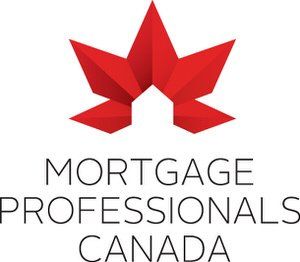The Benefits of Consulting a Mortgage Broker
Michael Hallett • May 08, 2019

Navigating the real estate and mortgage processes with the help of an expert mortgage broker can help set your mind at ease when making one of the largest financial decisions of your life.
Mortgage brokers negotiate with lenders on behalf of borrowers daily, so they know the ins and outs of what’s really important when arranging the best mortgage product and rate based on the unique immediate and longer-term needs of each borrower.
Brokers have access to multiple lenders’ products — including offerings available through banks, credit unions and trust companies, as well as alternate and private lenders. This means more choice for you — and better access to a product and rate that will meet your specific mortgage requirements.
Look Beyond Rate
While mortgage rate plays an important role in the affordability of your mortgage, there are a lot of other factors that can end up costing you more down the road if you fail to consider them when negotiating your mortgage terms. For instance, if you opt for a five-year fixed-rate no frills mortgage product to take advantage of a great rate upfront, but you decide to move before the five-year term is up, you may face thousands of dollars in penalties to break your mortgage. These penalties can far outweigh any savings you made in opting for a lower upfront rate.
By discussing your longer-term needs and goals with you at the start of your home and mortgage shopping experience, your mortgage broker will also help ensure you look for properties within your means — avoiding the potential issue of falling in love with a home you simply can’t afford.
Your mortgage broker will ensure you’re pre-approved for a mortgage so you know what you can afford. And, should rates increase during your pre-approval period, rest assured you will be offered the lowest rate.
Use a Broker at Renewal
It’s just as important to negotiate your mortgage product and rate at renewal time as it is the very first time you get a mortgage.
Your mortgage broker should stay in touch with you throughout the life of your mortgage and help you every step of the way. This partnership lets them re-evaluate your needs annually and assist you with a refinance when you’re in need of extra money for such things as financing renovations or your children’s education. You may also wish to buy an investment or rental property down the road.
Ask questions
If you don’t understand something your mortgage broker has told you, it’s important to ask for clarification. It’s their job to ensure you understand. After all, in the vast majority of cases, mortgage brokers across Canada are paid by the lender once they successfully place your mortgage. So it’s in your broker’s best interest to ensure you receive the best possible mortgage product and rate now and as long as you have a mortgage.
This article was produced by Mortgage Professionals Canada
(formerly CAAMP), the national association and the collective voice of the mortgage industry in Canada.
SHARE
MY INSTAGRAM
-
One of the most common questions, “how long does it take to get pre-qualified?” My response, “how fast can you provide the information I need.”Button
-
Playing in the forest today. Always fun exploring. #mountainbikingmortgagebrokerButton
-
Mortgage Brokering meets mountain biking and craft beer. A couple months ago I set for a bike ride with the intention of answering few mortgage related questions, mission accomplished. Any good bike ride pairs nicely with a tasty beer which we enjoyed @parksidebrewery. Hope you see the passion I have for brokering, biking and beer. @torcabikes #mountainbikingmortgagebrokerButton
-
My thighs were cold all day, it was ‘that’ deep. I was choking on snow all day.Button
-
The weather report was 36 cm of new snow, it was more like 45-50 cm of light deep powder. Insane day of skiing.Button
-
Spotted a ski-bunny today @kirstinjhallett so I trapped ‘er. 📸 credit @troy.hartleyButton
-
Aidan leading the pack up the Lemming Line in seek of fine fresh powder.Button
-
Beautiful British Columbia! A cold winter day at its finest.Button
-
Aidan and I braved the -19C temperature and windy conditions for the boot to knee deep turns...it was a no-brainer.Button
-
Happy Holidays. Seasons Greetings. Merry Christmas. All the best from Kirstin, Aidan and Michael. Enjoy your family time.Button
-
Snow report for today was boot to knee deep in places. Simply an awesome day rippin’ with the kids, I had to show them that I still got it. 📷 credit @jhalskiingButton
-
It’s that time of year for my annual post, the Christmas Tree pilgrimage. The only that changes year after year is that Aidan gets taller! Not to worry though, the Canadian tuxedo jacket remains the same. HAPPY HOLIDAYS everyone. Much love to all.Button
-
Fresh wood in the morning...where is this treasure trail going to take me?Button
-
TEASER alert...at thats what I think they call it in the business. Years ago a wrote a blog called BEERS BIKES AND MORTGAGES. I some how (in my head) blended all 3 topics into 1 blog. Simply put, I enjoy aspects of all 3 with each of them providing something different. I re-united with the talented Regan Payne on a project that I think will shed a bit more light on who I am and what I do. #craftbeer #mountainbike #mortgagebrokerbc #dlccanadaincButton
-
Here is to looking forward past injuries, feels good to be riding again. It was a 18 week grind!Button
-
Extreme tubing, watch until the end. Aidan manages to hold on.Button
-
Lake life as a passenger is a good life. Captain @kirstinjhallett . #woodlake #kalamakalakeButton
-
Yet another reason why our license plates say BEAUTIFUL BRITISH COLUMBIA on them. An evening enjoy the view on Pitt Lake.Button
-
Surfing! Don’t need functioning hands to surf. It was nice to do something active. Thanks @jordspring #sakinawButton
-
Good thing there were a few other vehicles with winches on the front.Button
-
He was OK, thumbs up. The roll cage and 5-point seat belt did its job.Button
-
My sons intro to operating a side-by-side on his own. Watch to the end.Button
-
The Lookout over looking Tulameen BC. Took some 4x4ing to get there, but we did it.Button
-
The day started out great. Exploring the back country roads of BC, Stave Lake area. Views of Alouette Lake in the backgroundButton
-
Impromptu ride on Burke. I dreamed of the day Aidan would ask to go for a ride...today was the day, “Dad do you want to go for a ride?” Heck ya, let’s go! This was a fun feature at the end.Button
-
An afternoon of exploring the Stave Lake zone. Planning to return soon once the snow melts to get some vertical.Button
-
Found a fun little gap-drop to session. I have my moments when I like my tires leaving the ground.Button
-
This would have been a fun stunt once upon a time!Button
-
And so it begins...another tool for adventuring! So different so fun!Button
-
You know it’s steep when your hand is touching the snow, high risk high reward.Button
-
The snow report suggested 8 cm had fallen, it was more like 25-30 cm.Button
-
Now that he has a dirt bike the hunt is on for me too. This is the first ride trying to figure out the timing of the throttle, clutch and brake...second ride was even better.Button
-
Exploring Pinecone Burke Provincial Park a month ago with @troy.hartley. Standing in the site of the old ski lodge.Button
-
A well weathered tree coming through yet another winter with Yak Peak 2,039 metres in the background. Putting my limited artist talent to the test, these iPhones and filters making anybody a photographer.Button
-
A successful reconnaissance mission we crossed Falls Lake, ski toured up towards Zopkios Peak 1921 m. It was a exceptional picnic destination. The skiing was shit!Button
-
Who’s is going to go first?...I’ll go if you don’t! No friends on a powder day! @j_penner70 📷 @sheascottcolpittsButton
-
An epic day. Everything was perfect. Depth of Snow. Visibility. Temperature. Even the company.Button
-
In the green room today on the best coast amidst winter...not a bad place. 📷 @dgm_imagesButton
-
I saw this hat on Instagram, that very moment I knew I needed it. As a BC boy born and bred The Outdoorsman hat needed to be added to my collection. As someone who loves BC and most things outdoor, I’m now glad I have a cool hat to wear and fly the flag of BEAUTIFUL BRITISH COLUMBIA. It will be in my bag for all post-exploration celebratory cold pints. If you want to check them out or add one to your collection go to @nineoclockgun ...and yes my facial hair matches the hat as well.Button
-
When two of your ski buddies are 13 years old, you know you’re raising rippers. @paigerrileyButton
-
My ski buddy getting untracked turns. It was knee to thigh deep all day for him, only shin to knee for me.Button
-
We went for a snowshoe this afternoon, but we probably should have considered taking our flippers instead. Our timing was off by one day.Button
-
From sea to snow capped peaks, it’s obvious why Vancouver and BC continue to be one of the best places to live. It’s engraved on our license plates, BEAUTIFUL BRITISH COLUMBIA.Button
-
Ancient blue glacier ice craving out deep valleys. It’s pretty cool standing underneath one...photo credit @dustanwoodhouseButton
-
This is a great start to the day!Button
-
No better way to share the great outdoors than with friends. @troy.hartley @mike_ilic711 @j_penner70Button
-
The ski out back to the truck was more of an adventure than we bargained for...Button
-
Exploring the BC backcountry, it did not disappoint...it never really does.Button
-
Thank god we are all narcissistic and have the ability to take pictures of ourselves 🤪. This is taken pre-turkey dinner, I’m sure we will all be back in our comfy clothes soon! Merry Christmas!Button
-
The crew shredding some turns , it was a 23,000 vertical foot kind of day.Button
-
Happy belated Hanukah, Merry Christmas and Happy Holidays to all. Be sure to enjoy the festivities.Button
-
Top of Swan Falls. I’ve said it many times before and I will say it again, our license plates say it all. BEAUTIFUL BRITISH COLUMBIA. #gooutsideButton
-
The coveted annual mission to get our Xmas tree, with of course my Canadian tuxedo jacket on.Button
-
Yet another reason (unlimited really...) of why the Left Coast is the best coast! @tami0777Button
-
Moss, a non-vascular plant and Mother Nature’s carpet reclaiming the forest.Button
-
Capitalizing on a break in the wet coast rain storms.Button
-
Just follow the brown line switchbacking through Mother Nature. She’s so damn beautiful!Button
-
Day 3 for Black Magic was a bit snowier than initially expected. Thanks to the person who took a few minutes to build a snow creature.Button
-
Beauty day for a ride! I should have considered bringing my touring skis.Button
-
The West Coast is the Best Coast. #nofliter at sunset.Button
-
This was Day 1 on my @yt_industries Capra Pro 29. I thought the last bike was the best, it was a Capra Pro 27. I never thought the small differences in geometry and wheel size would have such a huge positive impact on my riding. Boy was I wrong! Best bike ever!Button
-
Oh boy! See a toy...buy a toy! New steed! YT Capra Pro 29 hitting the trails soon.Button
-
A tasty beverage while on the water yesterday from @backcountrybrewr and @backcountrybrewingButton
-
Epic ride with boys yesterday. Into the Mystic, Last Call, Happy Hour and Lord of the Squirrels. 5 hrs 15 mins, 31 km and 1,397 vertical metres.Button
-
Whistler slick rock is my favourite.Button
-
Wood to wood gap in Whistler.Button
-
Passing underneath the Ironworkers Memorial Bridge on the return journey of dinner-by-boat. No filter.Button
-
And now the training starts for Paris 2024 summer olympics.Button
-
Archery target: before, during and finished.Button
-
Aidan’s first day in the Whistler Bike Park, he had a blast and we rode trails I didn’t think we’d ride 😳. I’m sure we’ll return soon enough.Button
-
A rare sighting at the Whistler Bike Park, it’s been at least 10 years.Button
-
When the opportunity presented itself, I couldn’t pass up one of my favourite slick rock rolls.Button
-
Pre-dinner antics...it’s totally safe!Button
-
Aidan is captaining the watercraft, mom in just the passenger. Kalamaka Lake.Button
-
#Drewmboat camo @parksidebreweryButton
-
Safety first when roasting marshmallows.Button
-
Great place to press snooze for 20 minutes. Chez Labowka.Button
-
Raw kale. Just not the same as a kale caesar salad.Button
-
Saratoga Beach fire.Button
-
Canadian tuxedo.Button
-
Happy Canada 🇨🇦 Day to everyone near and far. I hope it’s a kick ass day. Play safe.Button
-
The @yellowdogbeer squirrel chaser or otherwise known as the chew toy was a hit with me and Moka LabowkaButton
-
It’s always fun to start the trail with a repel. #mountainbike #climbingButton
-
It only took me a half dozen or so tries but I managed to cross the halfway line. This old guy still has it! Fun times.Button
-
Follow your path, at times you never know where it’s going to take you. Trust the outcome. Having fun in The Green Room.Button
-
This old guy was collecting a few air miles today.Button
-
Going vertical. #slickrockButton
-
I have a ski buddy, now it’s time to train a biking buddy.Button
-
I’m really looking forward to riding this gem once it re-opens. #burkeinmybackyardButton
-
Enjoying a distanced beverage with @senorwad @yellowdogbeerButton
-
Aidan and a couple buddies are now members at the Pitt Meadows Golf Club. @greggmcnally @genevemcnally @wendy22boddy @jaradboddy @kirstinjhallettButton
-
Raw and unedited. Old school skinny with a drop at the end.Button
-
I’m still HOME ALONE! Looking forward to the day when I’m able to have some friends over to share these @backcountrybrewing Widowmaker IPAs. #backcountryphotocontestButton
-
Zoa Peak, Coquihalla summit 1,500 vertical metres of skiing.Button
-
Distancing myself from the real world!Button
-
The dry land version of the @andrei_svechnikov37 lacrosse-style goal executed Aidan.Button
-
Skis or bike? Bike. The snow won’t stop me.Button
-
Does anybody need or want any firewood? It’s free...you come pick it up.Button
-
I needed to buck up the trees they fell in the last wind storm. Task complete.Button

Chances are if the title of this article piqued your interest enough to get you here, your family is probably growing. Congratulations! If you’ve thought now is the time to find a new property to accommodate your growing family, but you’re unsure how your parental leave will impact your ability to get a mortgage, you’ve come to the right place! Here’s how it works. When you work with an independent mortgage professional, it won’t be a problem to qualify your income on a mortgage application while on parental leave, as long as you have documentation proving that you have guaranteed employment when you return to work. A word of caution, if you walk into your local bank to look for a mortgage and you disclose that you’re currently collecting parental leave, there’s a chance they’ll only allow you to use that income to qualify. This reduction in income isn’t ideal because at 55% of your previous income up to $595/week, you won’t be eligible to borrow as much, limiting your options. The advantage of working with an independent mortgage professional is choice. You have a choice between lenders and mortgage products, including lenders who use 100% of your return-to-work income. To qualify, you’ll need an employment letter from your current employer that states the following: Your employer’s name preferably on the company letterhead Your position Your initial start date to ensure you’ve passed any probationary period Your scheduled return to work date Your guaranteed salary For a lender to feel confident about your ability to cover your mortgage payments, they want to see that you have a position waiting for you once your parental leave is over. You might also be required to provide a history of your income for the past couple of years, but that is typical of mortgage financing. Whether you intend to return to work after your parental leave is over or not, once the mortgage is in place, what you decide to do is entirely up to you. Mortgage qualification requires only that you have a position waiting for you. If you have any questions about this or anything else mortgage-related, please connect anytime. It would be a pleasure to work with you.

Let’s say you have a home that you’ve outgrown; it’s time to make a move to something better suited to your needs and lifestyle. You have no desire to keep two properties, so selling your existing home and moving into something new (to you) is the best idea. Ideally, when planning out how that looks, most people want to take possession of the new house before moving out of the old one. Not only does this make moving your stuff more manageable, but it also allows you to make the new home a little more “you” by painting or completing some minor renovations before moving in. But what if you need the money from the sale of your existing home to come up with the downpayment for your next home? This situation is where bridge financing comes in. Bridge financing allows you to bridge the financial gap between the firm sale of your current home and the purchase of your new home. Bridge financing allows you to access some of the equity in your existing property and use it for the downpayment on the property you are buying. So now let’s also say that it’s a very competitive housing market where you’re looking to buy. Chances are you’ll want to make the best offer you can and include a significant deposit. If you don’t have immediate access to the cash in your bank account, but you do have equity in your home, a deposit loan allows you to make a very strong offer when negotiating the terms of purchasing your new home. Now, to secure bridge financing and/or a deposit loan, you must have a firm sale on your existing home. If you don’t have a firm sale on your home, you won’t get the bridge financing or deposit loan because there is no concrete way for a lender to calculate how much equity you have available. A firm sale is the key to securing bridge financing and a deposit loan. So if you’d like to know more about bridge financing, deposit loans, or anything else mortgage-related, please connect anytime! It would be a pleasure to work with you.








































































































